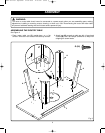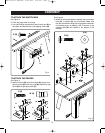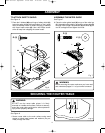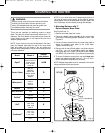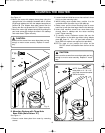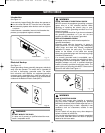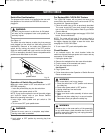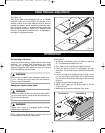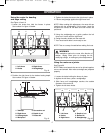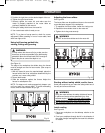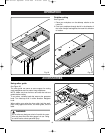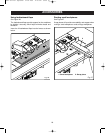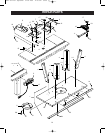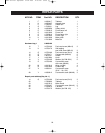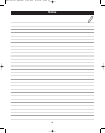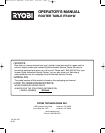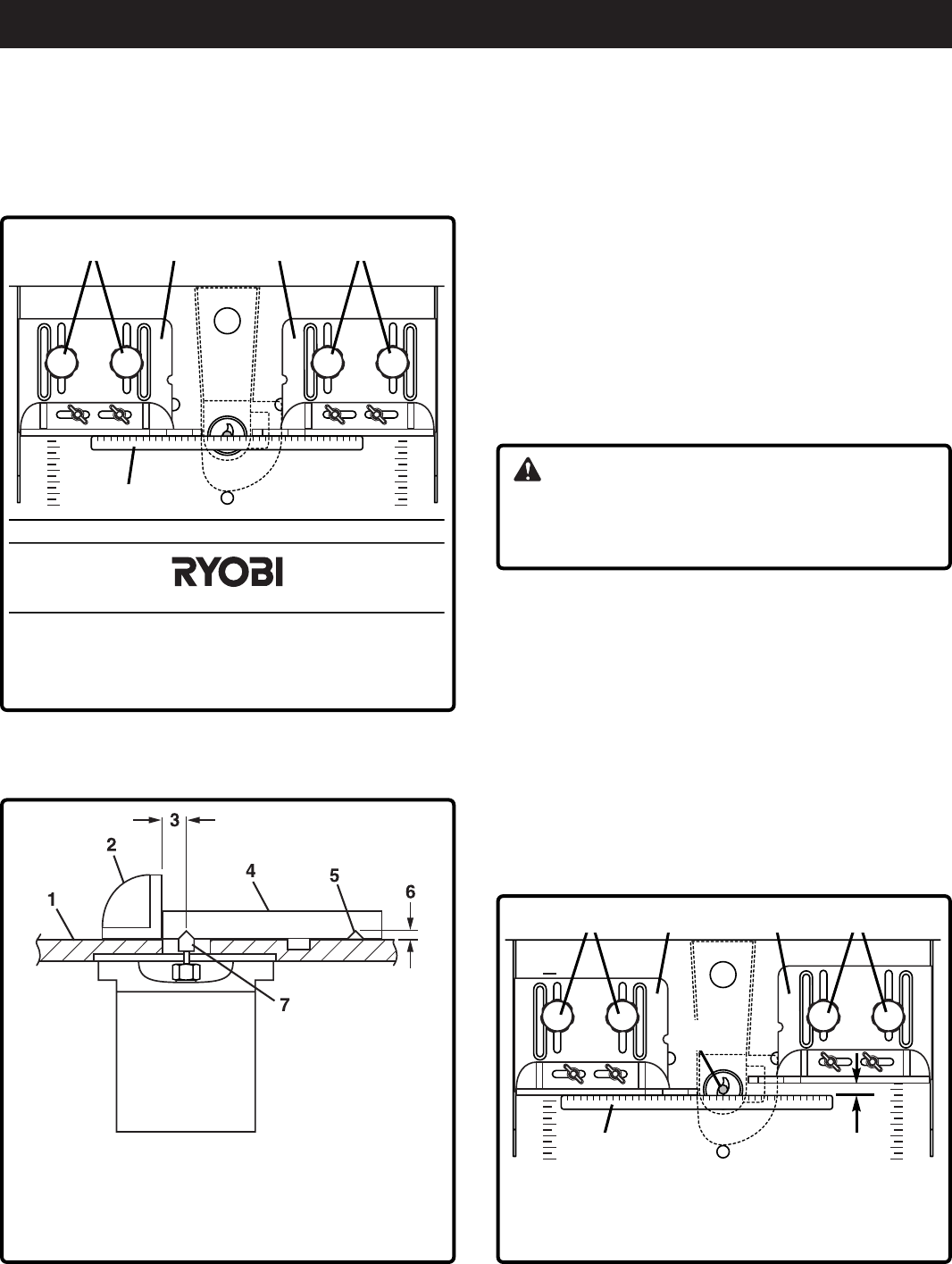
17
OPERATION
WARNING:
Feed workpiece against the router bit's direction of
rotation. Unplug router prior to changing the bit,
modifying settings, or making any other adjustments.
Using the router for beading
and edge cutting
See Figure 18 and 19
1. Loosen the knobs that hold the fences in place.
See number 2 in figure 18 below.
Fig. 18
2. Position the right fence for the desired cutting depth.
See number 3 in figure 19 below.
1. Tabletop
2. Right fence
3. Cutting depth
4. Workpiece
5. Successive cut
6. Depth of cut
7. Router bit
2 21 3
4
1. Left fence
2. Knobs
3. Right fence
4. Straightedge
Fig. 19
3. Tighten the knobs that secure the right fence in place.
4. Place a straightedge against the right fence face.
NOTE: When making this adjustment, the router bit can
interfere with the straightedge. If this occurs, lower the
bit below the surface of the table until both fences are
positioned.
5. Using the straightedge as a guide, position the left
fence so it is even with the right fence.
6. Swing the safety shield over the router bit.
7. Your router/router table is now ready to use.
NOTE: Test on a scrap of wood before making final cuts.
Using the router as a jointer
See Figure 20
NOTE: Make sure boards that are to be jointed together
are true and smooth. Also make sure edges are prepared
properly.
1. Loosen the knobs holding the fences in place.
2. Against the left fence, place a straightedge.
3. Slide fence until straightedge touches the outside
diameter of the router bit.
4. Tighten the left fence knobs.
Fig. 20
2 21 3
6 4
1. Left fence
2. Knobs
3. Right fence
4. Depth of cut
5. Router bit
6. Straightedge
5
Bdal 6144.461 3Sprachen 04.06.2005 11:56 Uhr Seite 17



